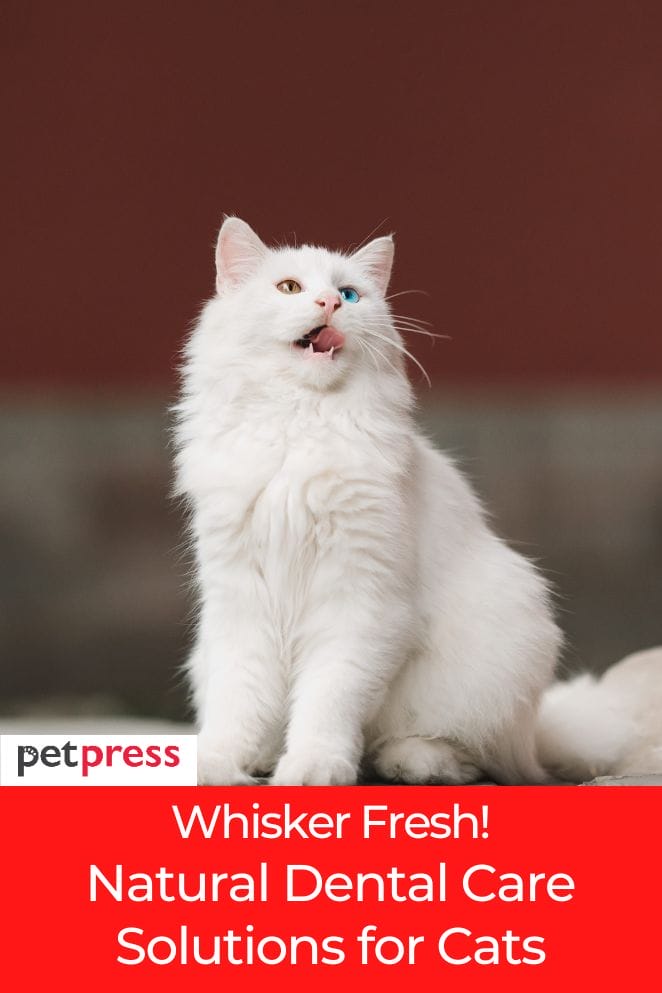
Ensuring your cat has a healthy smile is more than just for looks—it’s vital for their overall well-being.
Dental issues can lead to severe health problems if not addressed, making dental care an essential aspect of feline health.
In this blog post, we’ll explore the importance of dental care for cats, common dental issues, and natural dental care options.
We’ll also discuss effective products and provide tips for maintaining your cat’s oral health naturally.
Importance of Dental Care in Cats
Cats, like humans, can suffer from dental problems such as plaque buildup, gum disease, and tooth decay.
According to the American Veterinary Dental Society, approximately 70% of cats show signs of dental disease by the age of three.
Regular dental care helps prevent these issues, ensuring your cat lives a long, healthy, and pain-free life.
Common Dental Issues in Cats
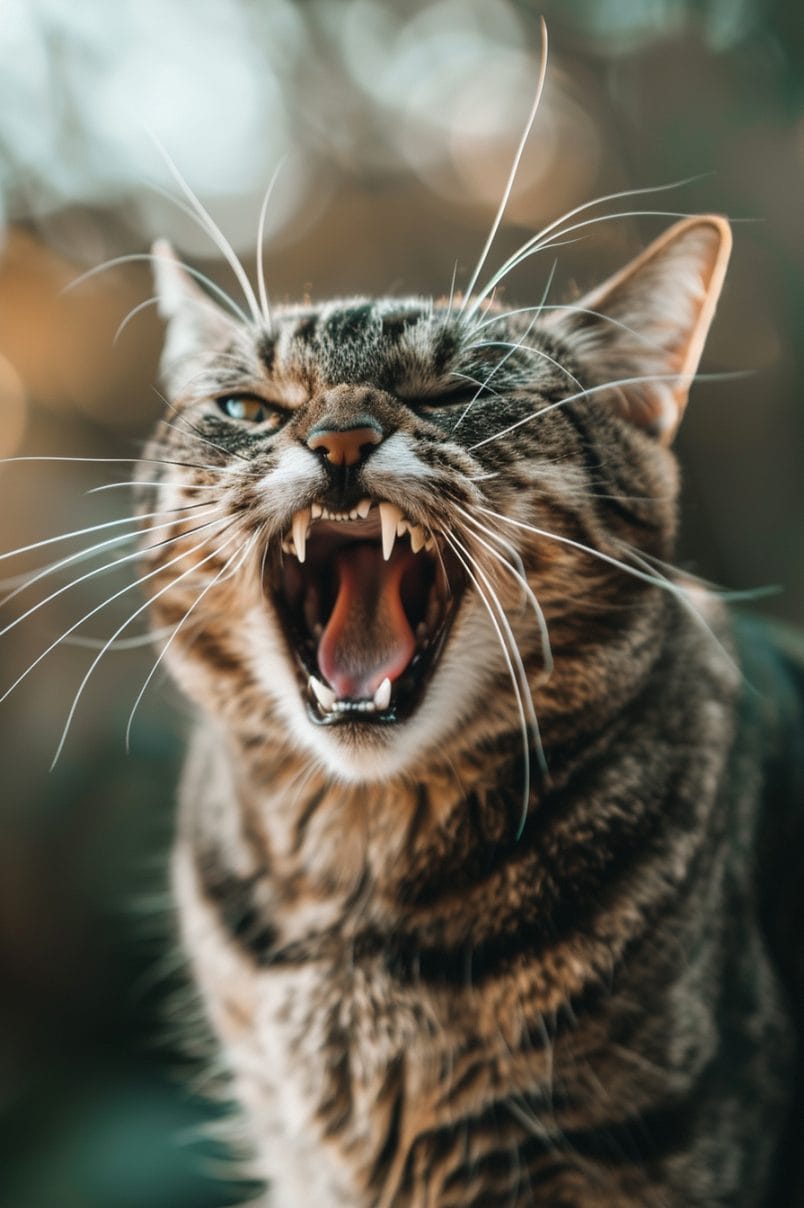
Cats can face a variety of dental problems, many of which are similar to those we experience.
Understanding these common issues can help you take better care of your cat’s oral health.
Plaque and tartar
Plaque is a sticky film that forms on teeth and is made up mostly of bacteria.
If you don’t remove plaque through regular brushing or cleaning, it can harden into tartar.
A tartar is a yellow or brown deposit that can form at the gum line, causing gum irritation and disease.
Plaque and tartar buildup are the most common dental problems in cats and can be prevented with proper dental care.
Gingivitis
Gingivitis is the inflammation of the gums, usually caused by plaque and tartar buildup.
If your cat’s gums are red, swollen, and bleed easily, they likely have gingivitis.
This condition can be painful and, if left untreated, can lead to more serious dental issues.
Regular dental cleanings and good oral hygiene can help prevent gingivitis.
Periodontal disease
Periodontal disease is a severe gum infection that damages the soft tissue and can destroy the bone supporting your cat’s teeth.
It starts with gingivitis, and if not treated, can lead to loose teeth, abscesses, and severe pain.
This disease is irreversible once it reaches an advanced stage, but early detection and treatment can help manage and control it.
Tooth resorption
Tooth resorption is a painful condition where the structure of a tooth breaks down and is gradually absorbed by the cat’s body.
This process often starts at the gum line and can eventually lead to the loss of the tooth.
Tooth resorption is quite common in cats, and while the exact cause is unknown, regular veterinary check-ups can help catch it early.
Treatment often involves extracting the affected teeth to relieve pain and prevent further issues.
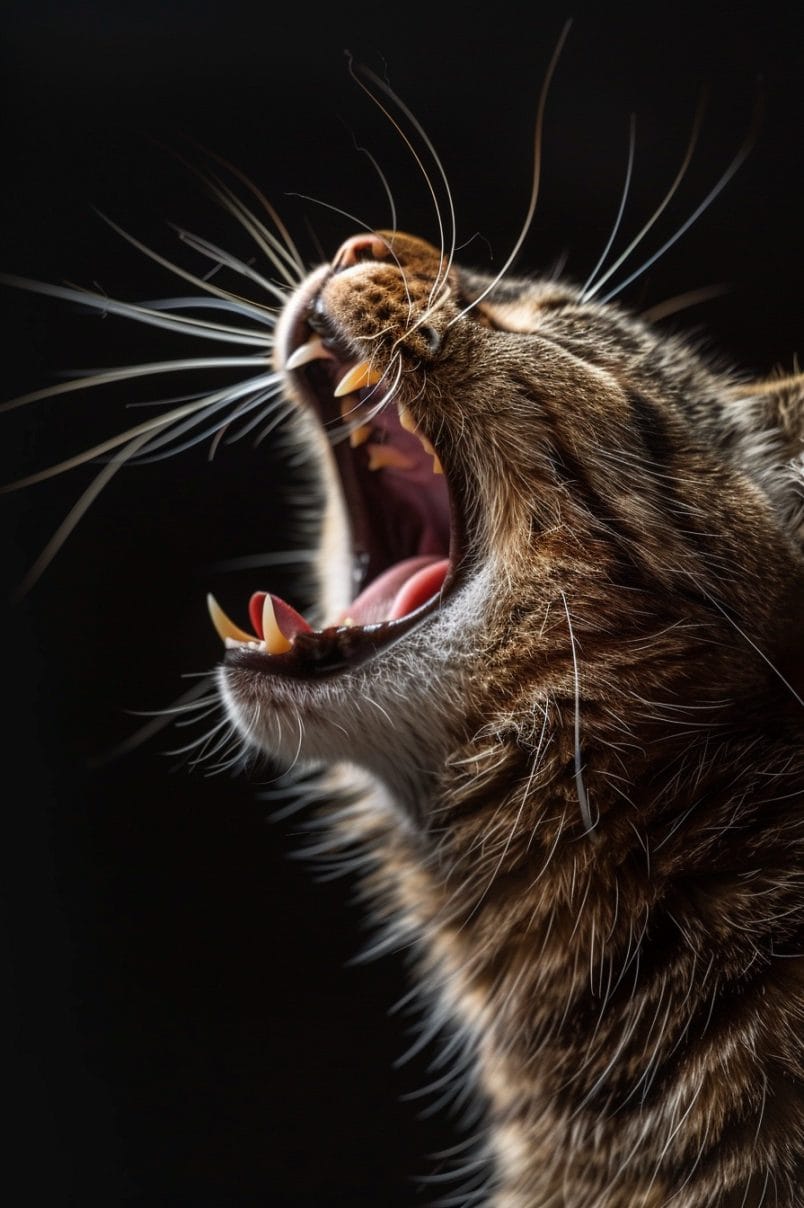
Signs of Dental Problems in Cats
Cats can’t tell us when something is wrong, so it’s up to us to watch for signs that they might be having dental issues.
Here are some key indicators that your cat might need dental care:
Bad breath
If your cat’s breath smells unusually bad, it could be a sign of dental disease.
While “kitty breath” isn’t expected to be minty fresh, a strong, foul odor can indicate bacteria buildup in the mouth.
Drooling or pawing at the mouth
Excessive drooling can be a sign that something is wrong in your cat’s mouth.
If your cat is pawing at their mouth frequently, it could mean they’re experiencing discomfort or pain, possibly from a dental problem.
Difficulty eating or loss of appetite
Dental pain can make eating a painful experience.
If your cat is dropping food, eating on one side of the mouth, or avoiding dry food, it could be a sign of a dental issue.
A sudden loss of appetite is always a red flag and warrants a visit to the vet.
Red or bleeding gums
Healthy gums should be pink. If your cat’s gums are red, swollen, or bleeding, it could be a sign of gingivitis or more severe gum disease.
This condition is painful and needs veterinary attention.
Loose or missing teeth
If you notice that your cat has loose or missing teeth, it’s a clear sign of advanced dental disease.
Teeth should not be loose in a healthy mouth, and losing teeth can lead to further complications and pain.
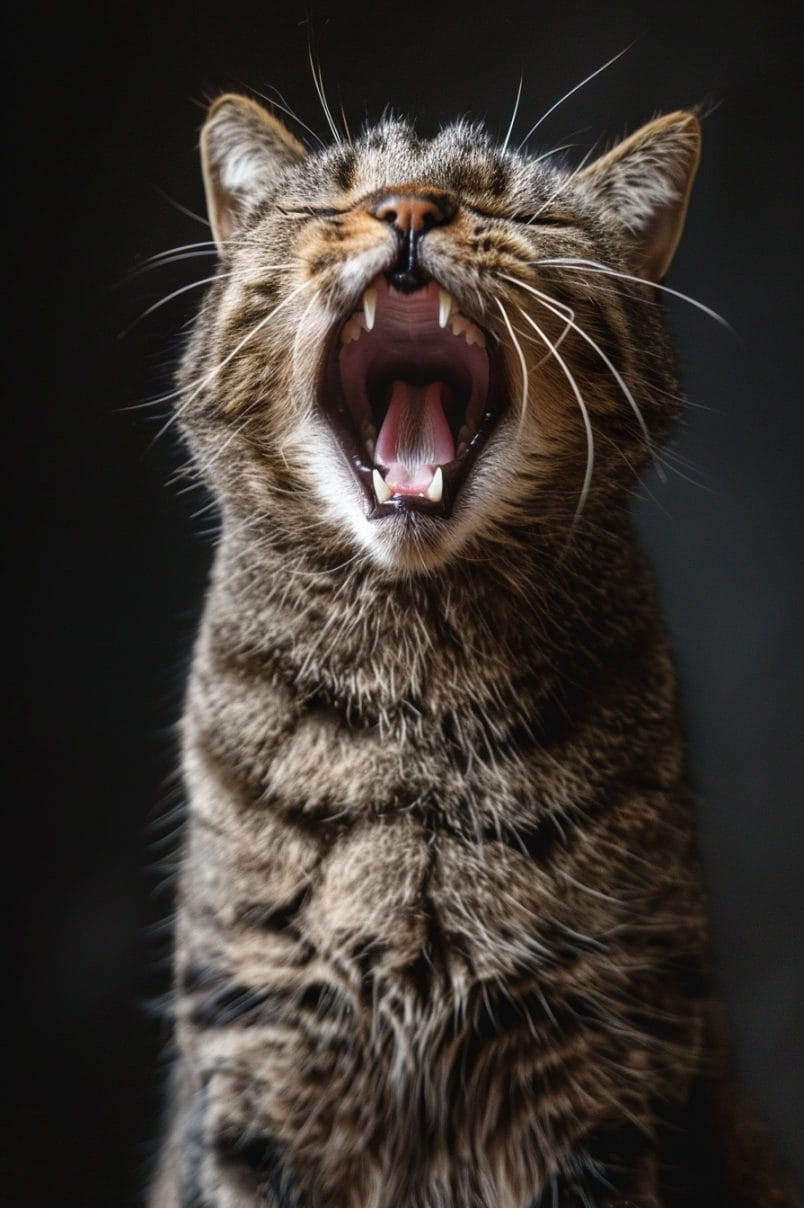
Natural Dental Care Options
Caring for your cat’s teeth naturally can be both effective and less stressful for your pet.
Here are some natural dental care options:
C.E.T. Oral Hygiene Kit
The C.E.T. Oral Hygiene Kit is a popular choice among cat owners for maintaining their pet’s dental health.
The kit includes:
- Finger toothbrush: Perfect for beginners, this brush fits over your finger, making it easier to control and less intimidating for your cat.
- Dual-ended toothbrush: This brush has two different sized heads, allowing you to choose the best fit for your cat’s mouth.
- Enzymatic toothpaste: Specially formulated for pets, it helps break down plaque and tartar.
Usage tips
Start by letting your cat sniff and lick the toothbrush and toothpaste.
Gradually introduce brushing by gently massaging the gums and teeth with your finger before progressing to the toothbrush.
Primal raw chicken necks
Raw chicken necks are an excellent natural dental care option for cats.
They are rich in nutrients and their texture helps scrape away plaque and tartar as your cat chews.
- Nutritional benefits: Raw chicken necks are high in protein and contain essential nutrients like calcium, which is crucial for strong teeth and bones.
- Ease of use: Simply offer the raw necks to your cat as a treat. Always supervise your cat to ensure they chew thoroughly and do not choke.
Enzyme supplements
Enzymes play a crucial role in breaking down food particles and preventing plaque buildup.
Adding enzyme supplements to your cat’s diet can aid in maintaining oral health.
- Examples: PlaqueOff and ProDen PlaqueOff Powder are popular enzyme supplements that can be sprinkled on your cat’s food daily.
- Benefits: Enzyme supplements work by reducing plaque formation and promoting fresh breath.
Crunchy treats
Crunchy treats help clean your cat’s teeth naturally by scraping off plaque as they chew.
Brands like Ark Naturals offer treats specifically designed for dental health.
- Ark naturals: These treats contain natural ingredients and are designed to clean teeth, reduce plaque, and freshen breath.
- Usage: Offer these treats as part of your cat’s daily diet. They can be a tasty and beneficial addition to their regular meals.
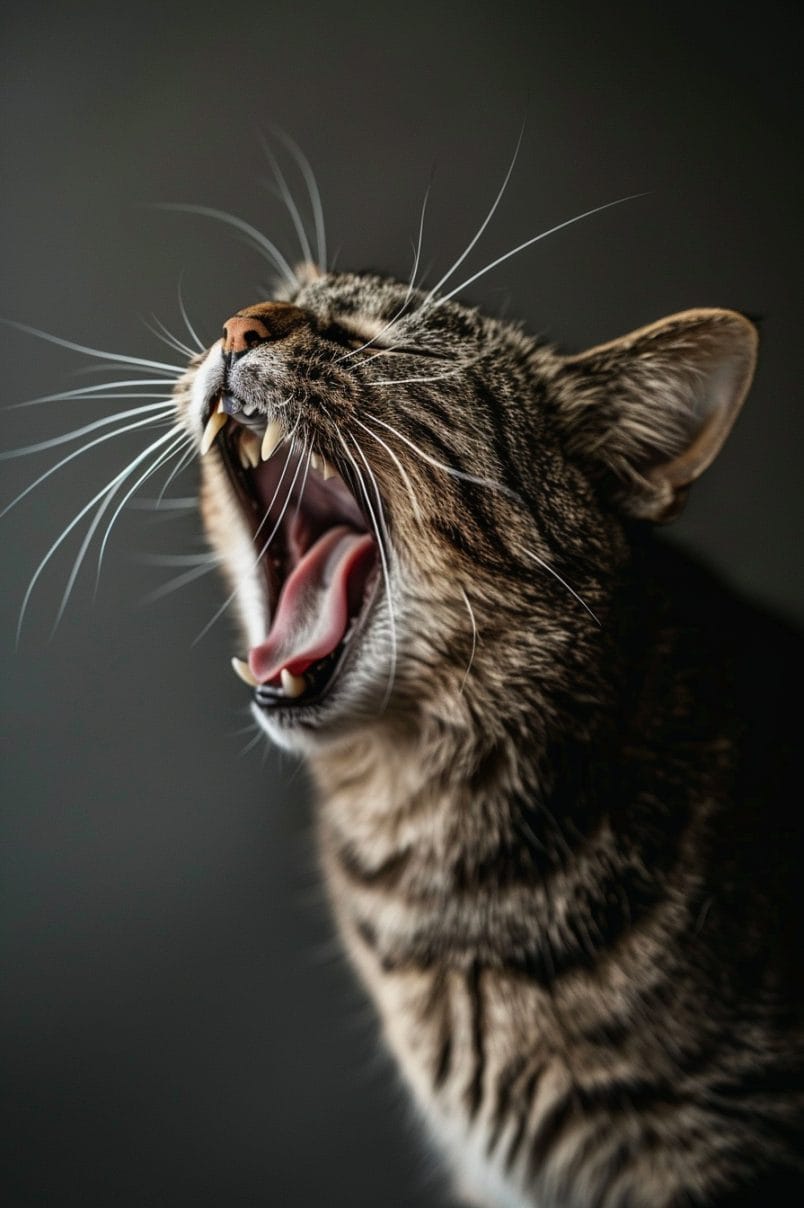
Additional Tips and Considerations
Keeping your cat’s teeth and gums healthy requires regular care and attention.
Here are some tips to help you maintain your cat’s dental health effectively.
Regular check-ups
Regular veterinary check-ups are essential for your cat’s dental health.
During these visits, your vet can perform professional cleanings and look for any signs of dental disease that may need treatment.
Frequency
- Annual visits: Schedule a dental check-up at least once a year.
- More frequent visits: Older cats or those with known dental issues may need more frequent check-ups.
Brushing
Brushing your cat’s teeth is one of the most effective ways to prevent dental problems.
Here are some tips to make the process easier and more effective:
Finger toothbrush
- Starting out: Begin with a finger toothbrush to help your cat get used to the sensation.
- Step-by-step introduction: Start by letting your cat lick the toothpaste off your finger. Then, gently rub their gums and teeth with your finger before using the toothbrush.
Consistency
- Regular routine: Aim to brush your cat’s teeth at least a few times a week. Regular brushing helps prevent plaque buildup and keeps their mouth healthy.
Dental chews
Dental chews are another excellent way to help maintain your cat’s oral health.
These products are designed to reduce plaque and tartar buildup through chewing.
CET chews
- Enzyme action: CET Chews contain enzymes that help break down plaque and tartar.
- Easy to digest: These chews are designed to be easily digestible and safe for your cat.
Other options
- Variety: Look for dental chews that are specifically formulated for cats.
- Vet approval: Choose chews that are approved by veterinarians to ensure they are safe and effective.
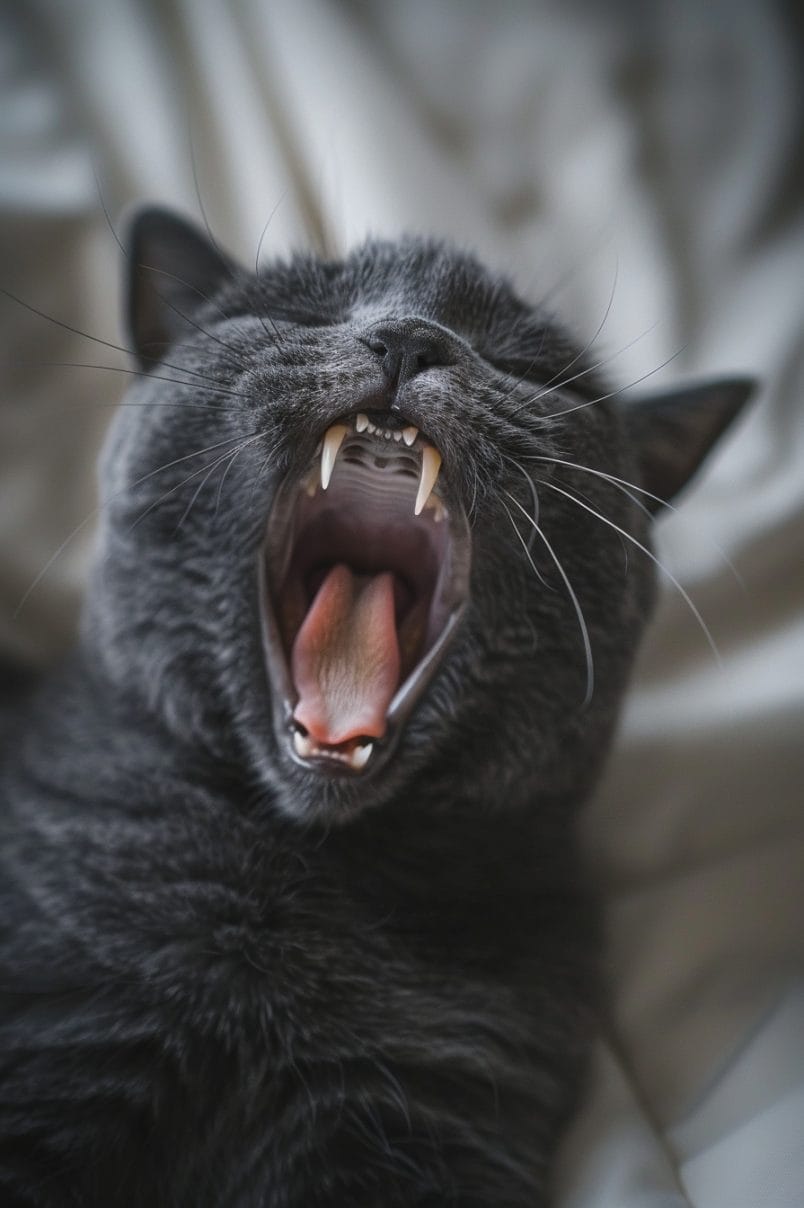
Conclusion
Maintaining your cat’s dental health naturally requires a combination of the right products and regular care.
By incorporating natural dental care options such as the C.E.T. Oral Hygiene Kit, raw chicken necks, enzyme supplements, and crunchy treats, you can help ensure your cat’s teeth stay healthy and strong.
Remember, regular veterinary check-ups and consistent brushing are key to preventing dental issues.
FAQs
Aim to brush your cat’s teeth at least a few times a week. Daily brushing is ideal for optimal dental health.
No, human toothpaste can be harmful to cats. Always use toothpaste specifically formulated for pets.
Raw chicken necks are generally safe, but always supervise your cat to prevent choking. Consult your vet if you have concerns about introducing raw bones into your cat’s diet.
Common signs include bad breath, drooling, difficulty eating, and pawing at the mouth. If you notice any of these symptoms, consult your vet.
- Does Cat Litter Melt Ice? The Complete Guide to Winter Safety - January 30, 2026
- Happy Tail Dogs: Understanding This Common Canine Condition - January 29, 2026
- How Cold Can Outdoor Cats Handle? Feline Winter Safety - January 27, 2026


GIPHY App Key not set. Please check settings